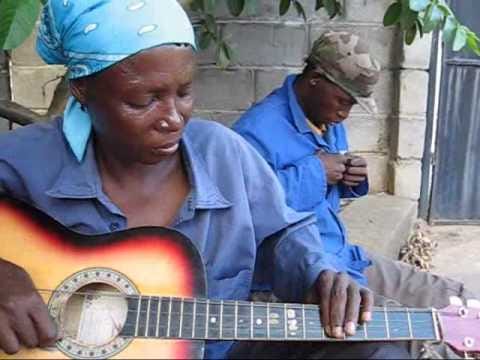YouTube does some things well. Music, for example. When's the last time you went to YouTube looking for a musical obscurity and came up dry? Not often, right? Most of the time you find that obscure gem - in assorted versions - and a boatload of tangentially related stuff. Algorithms ain't all bad, Beavis.
YouTube is also not bad at giving voice to music that might otherwise remain obscure. For better or worse, anyone who wants to post their solo piccolo rendition of “Cat Scratch Fever” or a crust punk rendition of “Send In The Clowns” now has no barriers to entry. If you'd like to explore the sub-genre (sub-sub-genre?) of Mongolian synthwave, then have at it.
The service also lends itself to rabbit holes. I refer to the phenomenon of listening to a selection and then being led astray, surfacing an hour or six later, wondering why it's dark already.
A rabbit hole I find myself revisiting frequently is Botswanan guitar music. It's cost me a lot of hours. But don't take my word for it. Do a search for a "Botswana guitar" and have at it.
I've been listening to world music (if that's what we're calling it nowadays) for a long time. But I can't remember how this came to pass.
My interest probably started with Celtic music, like the Chieftains and whatever I heard on the Thistle & Shamrock, the public radio show that's been airing for more than 40 years. Eventually my interests expanded to the greater, wider world of world music. At some point, those interests began to contract again, until the focus was mostly on African music. From there it whittled itself down to African music, Zimbabwe style (with an occasional side of South Africa). Which is where things stand.
And now Botswana, a lesser-known African country that lies to the west of Zimbabwe and to the northwest of South Africa. It's larger than Zimbabwe, but has significantly less people. The entire country has a population of just over two million people, which puts it on a par with Houston, Texas. Botswana is considerably smaller than South Africa, in terms of both size and population.
Wikipedia claims that "the music of Botswana is minor in the world music scene." As a fan of music from southern Africa, I'd go along with that. I'm hard to pressed to name any Botswanan musicians who are as well-known as the stars from neighboring countries. Prior to discovering the Botswana guitar sub-culture on YouTube, I'd have been hard pressed to name any Botswanan musician.
That YouTube search for "Botswana guitar" will tip you into a rabbit hole of videos that share many similarities. Production values are modest, as are the surroundings. The performers look like regular people, as opposed to flashy, well-dressed, charismatic professional musicians. But what they lack, they make up for with enthusiasm and mastery at playing a jubilant style of guitar-based African music.
What jumps out right away, even if you're not a guitarist (I am), is the guitar playing. Most guitars are battered acoustics, with the second and third bass strings removed. Many players use a curious overhand style of fretting and attack the strings, pumping out anchoring runs on the sole bass string, interspersed with cheery, jangling chords. All of this plays out in a very unorthodox manner, with players going at the strings using body parts that aren't usually used to play guitar.
But a picture really is worth a thousand words and a video is worth a lot more. So start with the video and then descend into the rabbit hole, if it pleases you.
The 2009 video features Ronnie Moipolai. It was a hit, at least by the standards of Botswanan guitar music. Beyonce and Taylor might rack up mega-views, but for Moipolai - who died in 2018, at the age of 39 - to rack up millions of views was impressive. This brought him sufficent renown that he eventually "co-starred" in a video with Joss Stone. Although renowned for his upbeat, pleasant manner, Moipolai was not starstruck and, not surprisingly, had no idea who Stone was.
As noted in the 2018 NPR piece listed below, the similar feel of many of the Botswana guitar videos has a lot to do with Johannes Vollebregt. A native of the Netherlands who transplanted himself to Botswana's capital, Gaborone. It was here that this curious strain of music came to his attention and he decided to document it. One thing led to another and, in 2018, I'm Not Here To Hunt Rabbits, an album of Botswanan guitar music, was jointly released by the German label Piranha Records and Brooklyn's The Vital Record.
You can stream it right now on YouTube - of course.



I’m on a plane right now and can’t stream but this is the first thing I’m watching when I land. Great read and thanks for sharing.
Amazing !